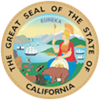
News Release
California Department of Food and Agriculture
Media Contacts: Steve Lyle (CDFA), 916-654-0462 , officeofpublicaffairs@cdfa.ca.gov
CDFA ANNOUNCES STAKEHOLDER WORKSHOPS FOR NEW ALTERNATIVE MANURE MANAGEMENT PROGRAM PRACTICES
SACRAMENTO, July 30, 2020 – The California Department of Food and Agriculture’s Office of Environmental Farming and Innovation (OEFI) is conducting workshops to share requirements for proposals for new manure management practices in its Alternative Manure Management Program (AMMP).
Proposals for new practices are currently being accepted through a Request for Proposals (RFP), which was announced on July 6, 2020. There are several important requirements needed to submit a manure management practice for consideration in AMMP. Proposal requirements, process for consideration and other details on the submission process can be found on the AMMP webpage. Proposals must be submitted by 5 p.m., September 4, 2020 by email to CDFA.OEFI_ammp_tech@cdfa.ca.gov.
To further assist those interested in proposing new practices, CDFA OEFI staff will provide information regarding the process and requirements, and answer stakeholder questions in webinar workshops for remote participation on the following dates and times:
• Thursday, August 6, 2020, 1:30 p.m. – 3 p.m. PT
• Friday, August 7, 2020, 1:30 p.m. – 3 p.m. PT
Click to register for the session date and time, or copy-and-paste in your browser: https://attendee.gotowebinar.com/rt/9039342786078820622
Interested stakeholders and members of the public are encouraged to register in advance. After registering, you will receive a confirmation email containing information about joining the webinar.
AMMP is part of California Climate Investments (CCI), a statewide program that puts billions of Cap-and-Trade dollars to work reducing greenhouse emissions, strengthening the economy, and improving public health and the environment – particularly in disadvantaged communities. The Cap-and-Trade program also creates a financial incentive for industries to invest in clean technologies and develop innovative ways to reduce pollution. CCI projects include affordable housing, renewable energy, public transportation, zero-emission vehicles, environmental restoration, more sustainable agriculture, recycling and much more. At least 35 percent of these investments are located within and benefiting residents of disadvantaged communities, low-income communities and low-income households across California. For more information, visit the CCI website.
-30-

1220 N St., Ste. 214, Sacramento, CA 95814
916-654-0462, www.cdfa.ca.gov
